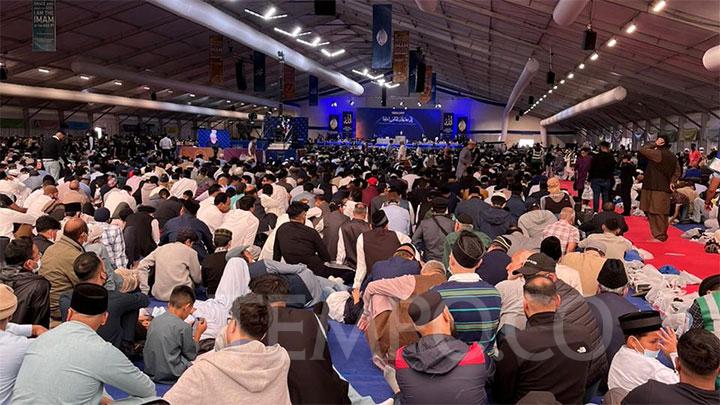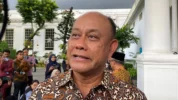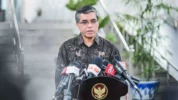Indonesian President’s Call for Unity Undermined by Local Religious Ban
JAKARTA, RAKYAT NEWS – In response to the Kuningan Regency Government’s decision to prohibit the annual Jalsah Salanah gathering of the Ahmadiyah Indonesia Community in Manislor Village, West Java, Usman Hamid, Executive Director of Amnesty International Indonesia, expressed disappointment and concern.
“It is deeply regrettable that this act of intolerance comes just two days after the President emphasized the importance of diversity and harmony as a cornerstone of national unity,” Usman said.
“This incident highlights a lack of coherence between central and regional government policies regarding the protection of human rights in Indonesia.”
Despite changes in administrations, the state’s approach towards the Ahmadiyah Community remains consistently intolerant. According to Usman, the justification for banning the event—‘to maintain regional harmony’—is unacceptable and undermines the constitutional freedom to practice religion according to personal beliefs.
Usman noted that this is not an isolated incident. Over the years, the Ahmadiyah Community has faced repeated acts of discrimination, including the dissolution of religious events, intimidation, forced evictions, and even persecution. These incidents, he said, represent a systematic pattern of discrimination against religious minorities in Indonesia.
Amnesty International Indonesia has called on the Kuningan Regency Government to immediately revoke the ban and allow the Ahmadiyah Community to hold their Jalsah Salanah gathering without interference. Usman also urged national authorities to ensure that local governments respect the rights of all citizens, regardless of their religious beliefs.
In addition, Amnesty called for the repeal of the 2008 Joint Ministerial Decree issued by the Minister of Religious Affairs, the Minister of Home Affairs, and the Attorney General. The organization argued that this decree forms the foundation for widespread discrimination against the Ahmadiyah Community and should be revoked to protect religious freedom.
The Kuningan Regency Government banned the Ahmadiyah Community from holding their Jalsah Salanah gathering, which was scheduled to take place from December 6 to 8, 2024, in Manislor Village, Jalaksana District. Officials cited potential threats to regional stability as the reason for the prohibition.
In a letter dated December 4, 2024, and signed electronically by the Acting Regent of Kuningan, the government prohibited the gathering. This decision was reinforced by another letter on December 5, 2024, signed by the Acting Regional Secretary of Kuningan, which gave the Ahmadiyah leadership an ultimatum to cease all event-related activities by 5:00 PM that day.
The ban came shortly after President Prabowo delivered a speech at the 112th anniversary of Muhammadiyah in Kupang, East Nusa Tenggara, on December 4. In his address, the President emphasized the importance of unity and harmony in diversity as a key to achieving national prosperity.
Amnesty International Indonesia has documented at least 122 cases of religious intolerance in Indonesia from January 2021 to September 2024. These incidents include the rejection, closure, or destruction of places of worship and physical attacks. Perpetrators reportedly include government officials, community members, and civil society organizations.
Such incidents underscore the challenges faced by religious minorities in Indonesia despite the country’s constitutional and international commitments to religious freedom. Article 18 of the International Covenant on Civil and Political Rights (ICCPR) guarantees every individual the right to practice their religion freely.
The ICCPR’s protections include the freedom to observe, practice, and teach one’s religion or beliefs. Similarly, Indonesia’s 1945 Constitution explicitly safeguards the right of every citizen to worship according to their beliefs under Articles 28E (1) and 29 (2).
Amnesty International Indonesia continues to call on the Indonesian government to uphold these commitments by taking decisive action against intolerance and discrimination. The organization stressed that safeguarding religious freedom is essential for preserving the country’s diversity and unity. (Uki Ruknuddin)























Tinggalkan Balasan